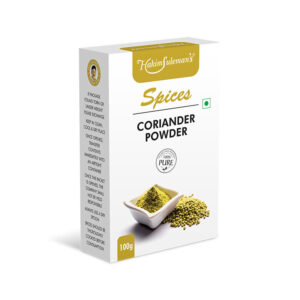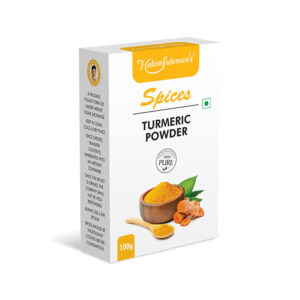How to Keep Sinusitis At Bay With Natural Means

- Sinuses help to humidify the air we breathe
- Symptoms vary, depending on the length and severity of the infection
- Sinus infection can last for more than 2 weeks
- If symptoms continue for 12 weeks or longer, the doctor may diagnose chronic sinusitis
Overview
That awkward green nasal discharge, that unending headache, and that reduced sense of smell – are not many of us aware of these symptoms? Don’t we want to get a relief from such a discomfort? Yes, they are the signs of Sinus. We should not delay its treatment before it turns out life-threatening. Let’s check how we can get rid of it with the help of natural remedies.
In this article, we will take you through below-mentioned topics:
- WHAT IS SINUSITIS?
- FACTS & FIGURES OF SINUSITIS
- CAUSES OF SINUSITIS
- SYMPTOMS OF SINUSITIS
- RISK FACTORS OF SINUSITIS
- WHO ARE AT HIGHER RISK OF SINUSITIS?
- COMPLICATIONS RELATED TO SINUSITIS
- HOW LONG DOES SINUSITIS LAST?
- HOW TO PREVENT SINUSITIS?
- HOW TO DIAGNOSE SINUSITIS
- NATURAL TREATMENT FOR SINUSITIS
- PRECAUTIONS IN SINUSITIS (DOs & DON’Ts)
- HOW UNANI CAN HELP
Click above to navigate your topic of interest
What is Sinusitis?
Sinusitis is an inflammation of the paranasal sinuses, which are the cavities that produce the mucus necessary for the nasal passages to work effectively. It can be acute or chronic and can be caused by viruses, bacteria, fungi, allergies, or even an autoimmune reaction.
It is extremely painful sometimes, but if we take proper care of it and get the timely treatment, it will certainly go away.
Facts and Figures of Sinusitis
Different bacteria or viruses can cause inflammation in this problem. It can last more than 12 weeks if it becomes severe. In adults, 90 percent cases of sinusitis result from a virus while 1 case in 10 is caused by bacteria.
Causes of Sinusitis
Sinus can stem from various factors, but it always results from fluid becoming trapped in the sinuses. This stimulates the growth of germs.
Chemicals or irritants in the air can trigger a buildup of mucus. The sinuses either react to fungi in the air, as in allergic fungal sinus (AFS), or they are invaded by fungi, as in chronic indolent sinus.
Symptoms of Sinusitis
Symptoms vary, depending on the length and severity of the infection. If the patient has two or more of the following symptoms and thick, green or yellow nasal discharge, they may be diagnosed with acute sinus.
- Facial pain and pressure
- Blocked nose
- Nasal discharge
- Reduced sense of smell
- Congestion
- Cough
- Fever
- Halitosis, or foul-smelling breath
- Tiredness
- Toothache
- Headache
If these symptoms continue for 12 weeks or longer, the doctor may diagnose chronic sinusitis.
Risk Factors of Sinusitis
- Previous respiratory tract infections, such as the common cold Nasal polyps, or small growths in the nasal passage that can lead to inflammation
- Weakened immunity, for example, to a health condition or some kinds of treatment
- An allergic reaction to substances such as dust, pollen, and animal hair
- Structural problems in the nose, for example, a deviated septum
Who Are at Higher Risk of Sinusitis
People might get affected with this disease due to the certain reasons as mentioned below:
- Smoking
- Being exposed to second-hand smoke
- Certain medical conditions
- A recent cold
- Medication, such as prolonged use of decongestant sprays
- Polyps
- Deviated septum
- Facial bone abnormalities
- Swollen adenoids
- Cleft palate
- Tumor
- Allergies
- Certain chronic illnesses
- HIV infection
- Diabetes
- Head injury or a medical condition requiring a tube inserted in the nose
- Age
- Gender (women have a greater chance of developing sinusitis than men)
- Ethnic background
- Environmental factors
- Traveling to high altitudes
- Air pollution
Complications Related to Sinusitis
Further complications of sinus infection include:
- Infection of the eye and its surrounding tissue
- Sinus cavity blood clot (thrombosis)
- Meningi tis
- Brain abscess
- Bone infection
- Sensitivity to light
- Severe headache
- Confusion
- Seizure
- Inability to move neck forward (nuchal rigidity)
Anyone that develops any symptoms that suggest a potential complication of sinusitis must seek immediate medical attention.
How Long Does Sinusitis Last?
Sinus infection can last for more than 2 weeks. If the symptoms last for less than four weeks it is termed as an acute, between 4-12 weeks it is subacute, and greater than 12 weeks it is considered chronic sinus. About 40% of cases of acute infection improve spontaneously without the use of antibiotics. 98% of viral induced sinusitis improve without treatment. Allergies can also play a role in sinusitis; so often treatment of nasal symptoms with allergy medications or decongestants can help with symptoms.
Depending on your symptoms and previous history, a consultation with an Ear Nose Throat (ENT) physician should be considered.
How to prevent Sinusitis?
We should take certain preventive measures to get rid of this problem:
- Wash your hands frequently. This is especially important during cold weather, when viruses can live longer.
- Get a flu shot yearly. By preventing flu, you may also prevent a sinus infection.
- Eat a well-balanced diet and get a regular exercise. Staying in good health keeps your immune system healthy.
- Quit smoking as smoke can irritate sinuses.
- Don’t overdo the antibiotics. If you take too many antibiotics, you can build up resistance to the medication.
- Use a saline nasal solution.
How to Diagnose Sinusitis

A doctor will carry out a physical examination and ask the patient about their symptoms. This is usually enough to make a diagnosis.
The doctor may visually examine the nasal cavity with a light source, or a small, handheld device with a light attached called an otoscope, which can also be used to examine the ears.
If symptoms persist, a doctor may refer a person with sinusitis to an ear, nose, and throat specialist (ENT) for a more in-depth examination. They may insert an endoscope into the nose, a small, thin, flexible tube with a light and camera attached. This can provide more detailed images.
In cases of persistent or severe sinus, a CT scan may be needed.
Natural Treatment for Sinusitis
Several natural treatments are available to treat this problem. Follow those home remedies for sinus headache, and you will see considerable improvement.
Home Remedy

You can adopt different home remedies for sinusitis to get rid of this problem soon.
- Flush your nasal passages
- Take steam
- Stay hydrated
- Take spicy foods
- Avoid allergens
- Use humidifiers
- Apply warm compresses
Diet Tips
There are certain foods you should eat or avoid banishing the symptom of this disease:
| Foods to Eat | Foods to Avoid |
|---|---|
| Fish such as wild salmon, cod, and sardines are high in omega 3 fatty acids. | Processed Sugar |
| Avocados | Full-fat dairy products |
| Beans | Highly saturated fat, such as pizza and cheese, meat products, pasta dishes |
| Red bell peppers | Excess Omega-6 Fatty acids |
| Citrus fruits such as oranges, berries, grapefruit etc. | Canned/processed foods |
| Green vegetables such as asparagus, broccoli, bean sprouts, leafy greens etc. | Refined Carbohydrates |
| Green tea | |
| Spices like ginger, turmeric, basil, cayenne pepper etc. |
Lifestyle Tips
Change your lifestyle by following few easy steps, you will see considerable amount of change in this disease:
- It is said that vibration of ‘om’ sound can open the congestion related to this disease. You must practice it for 20-30 seconds.
- Any kind of headache is aggravated if we don’t drink substantial amount of water. So, stay hydrated all the time.
- If you want to speed up recovery from this disease, you need to take proper sleep.
- Put your pillow for 10 minutes in the dryer so that it can kill mites and remove dust.
Suggested Yoga Tips
Different yoga poses are beneficial for healing this problem:
- Mountain Pose
- Staff Pose
- Raised Arms Pose
- Lunge Pose
- Garland Pose
- Head to Knee Pose
- Standing Forward Bend
- Seated Forward Bend
- Plank Pose
Precautions in Sinusitis (Dos & Don’ts)
| Do’s | Don’ts |
|---|---|
| You can try acupressure to get rid of it. | Do not eat foods such as yeast, mushrooms, vinegar, dried fruits etc. |
| Use Sinus Survival Natural Nasal Spray at day time and use humidifier at night time. | Remove any dust-inviting products around your bed. |
| Eat anti-inflammatory foods such as broccoli, cherries, olive oil, green tea etc. to get rid of this problem. | Avoid dairy products such as yogurt, cheese, milk, and ice cream. |
How Unani Can Help
Sinusitis is not a serious condition but, if left untreated, it can aggravate into a serious disorder. This will not only cause you more pain and suffering but also make the treatment even more complicated. It is advised that you take care of your oral health and go for a natural treatment at the outset of the symptoms. We recommend you take Hakeem Suleman Khan’s R Care Majoon for healing this kind of respiratory problem.






